I have to to say I tend to approach the trend of “top ten list” articles with suspicion and annoyance at their limited views. I’m cynical of their criteria. Maybe it’s because on any given day I can name a completely different top ten artists I think you should look at depending on the context in question, or even my mood that day. That said though, I do tend to learn about at least one new artist when I read them. This time it was German artist Beate Kuhn (1927 – 2015). The article I mention is Famous Ceramic Artists – Looking at the World’s Best Pottery Artists on Artincontext.org, which ironically shares the work predominantly of ceramic sculptors, not potters, despite its title, but that’s beside the point.
Abstract Art
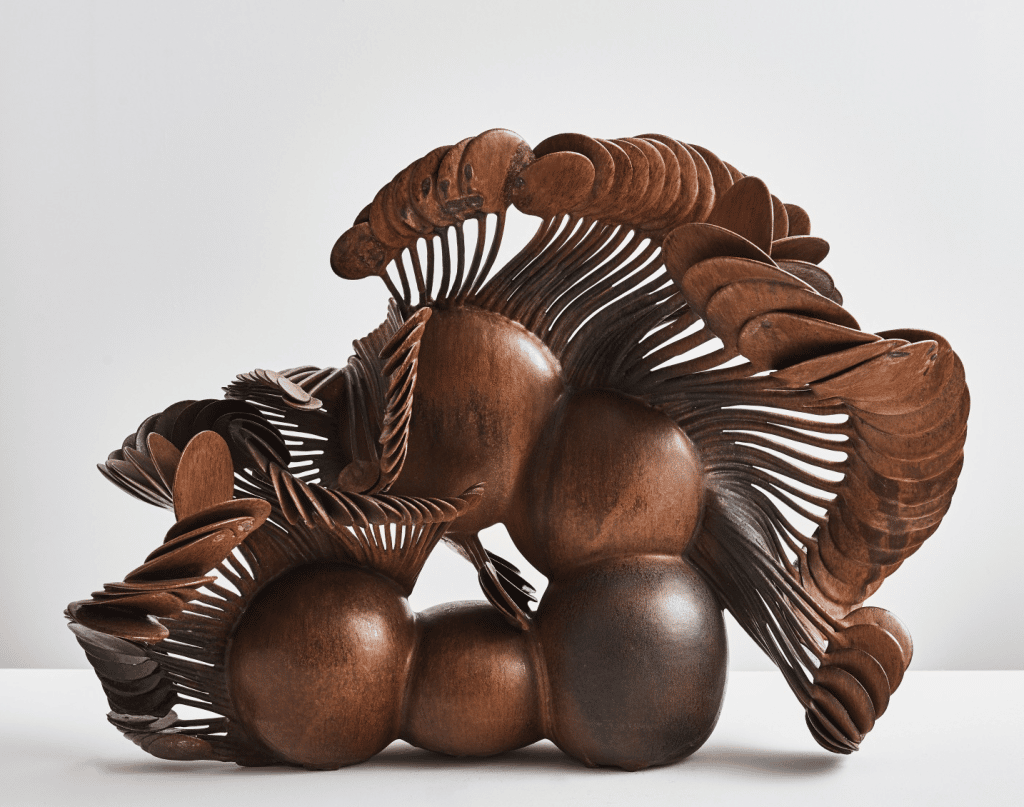
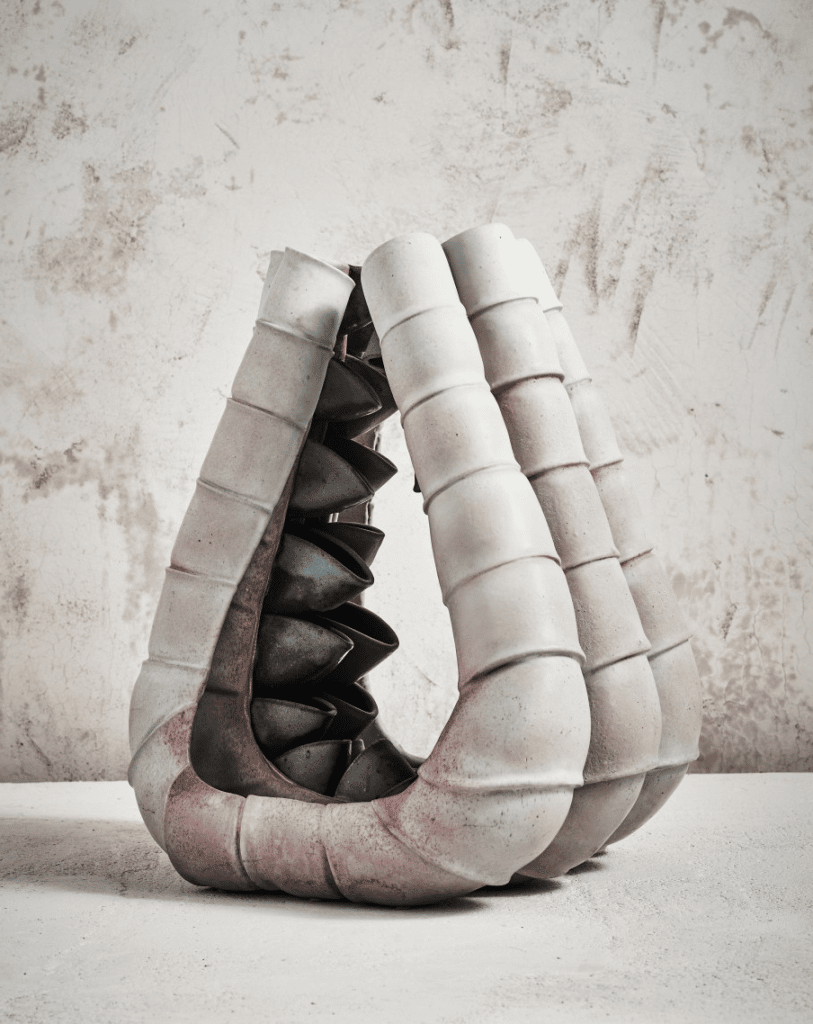
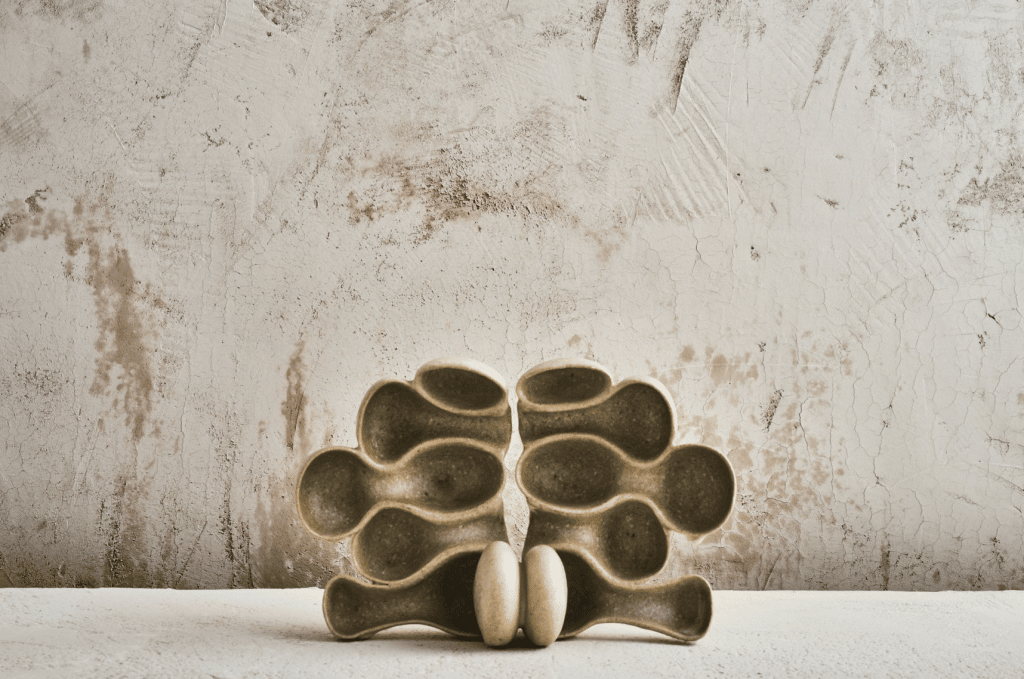
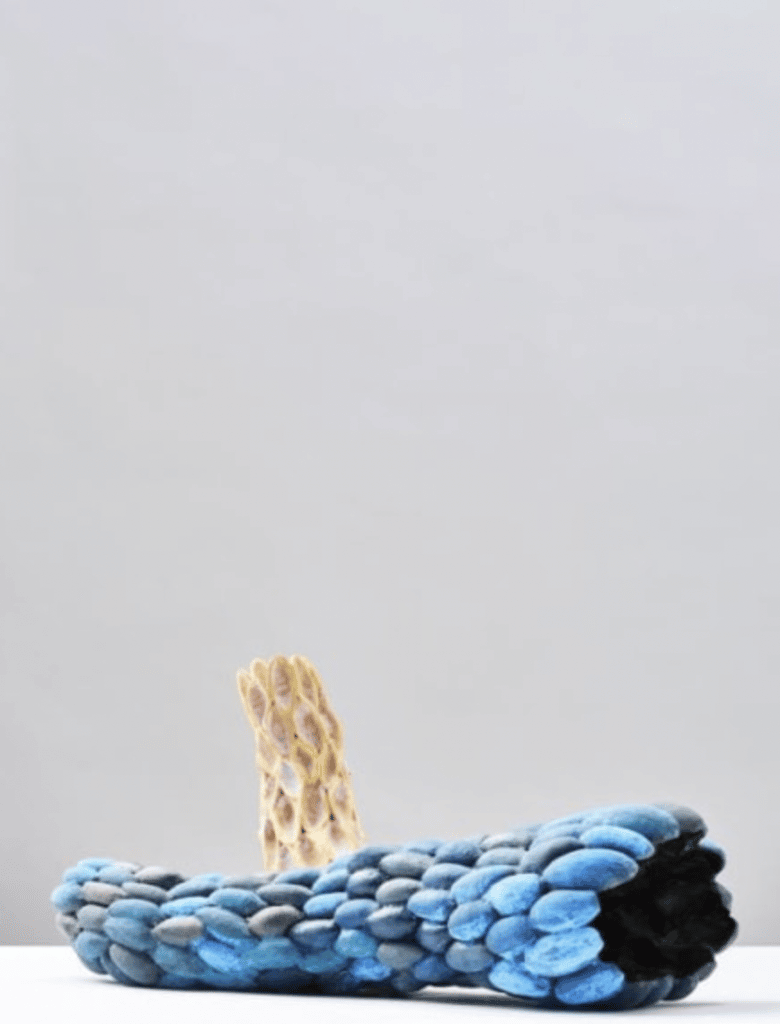
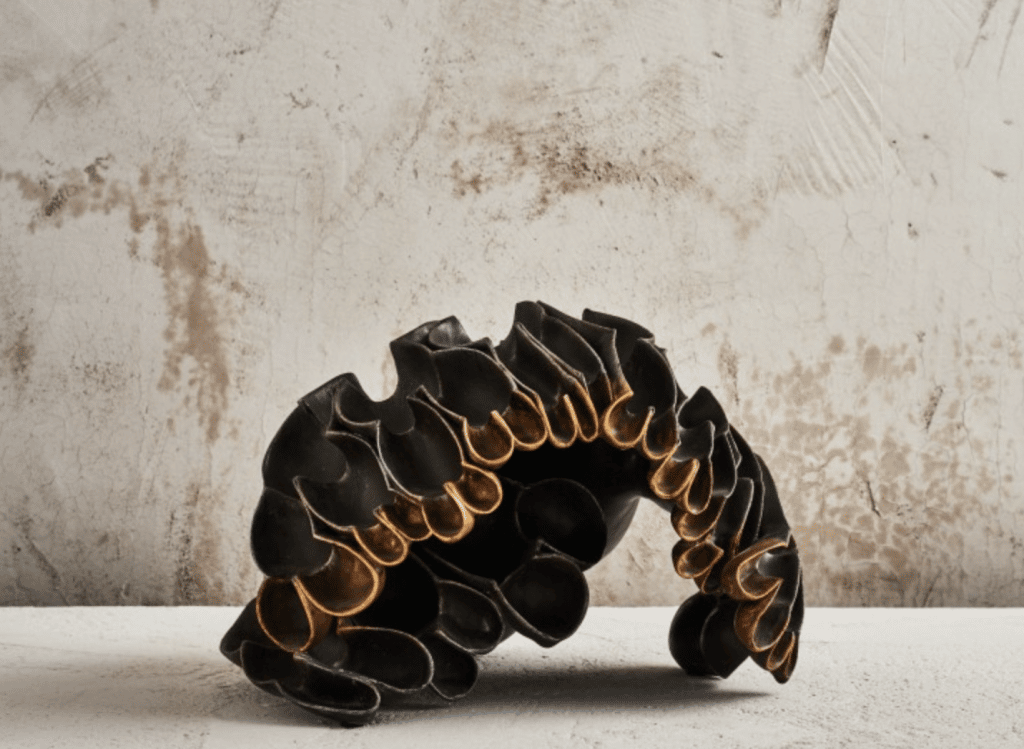
Beate Kuhn: Life and Times
Images and text below Via Jason Jacques Gallery:
“By the early 1960s, Kuhn’s work underwent a seismic shift away from functional vessels and towards sculptural objects. However, the visual language of potting remained vital. She began to dissect wheel-thrown elements and reassemble them. A garden of attenuated tubes might be spliced onto the top of a sphere, or discs of varying diameters interleaved by the dozens within oblong shells. She bilaterally sliced cups, bowls, ovoids, and spheres and arrayed scores of nearly identical elements in organic compositions that conjured segmented crustaceans, corals, or plants. She tucked convex forms inside concavities to play with positive and negative space. The superlative Sensual Sculpture exemplifies her proclivity for anthropomorphism and especially fecund female forms. By the time Kuhn exhibited in the first London Group exhibition of 1968, she had solidly established her personal approach to clay sculpture. For the rest of her career, she followed a similar method, but continually expanded her rich, formal vocabulary.”
So down the internet rabbit hole I went looking into the life and work of Beate Kuhn, and found far more then I was expecting. Her long and prolific career spans numerous reinventions, approaches to work and stylistic renderings that while still maintaining a lineage in the timeline of her work, also shows the diversity of tangents artists explore throughout decades of making. Take for example the animal depictions she created.
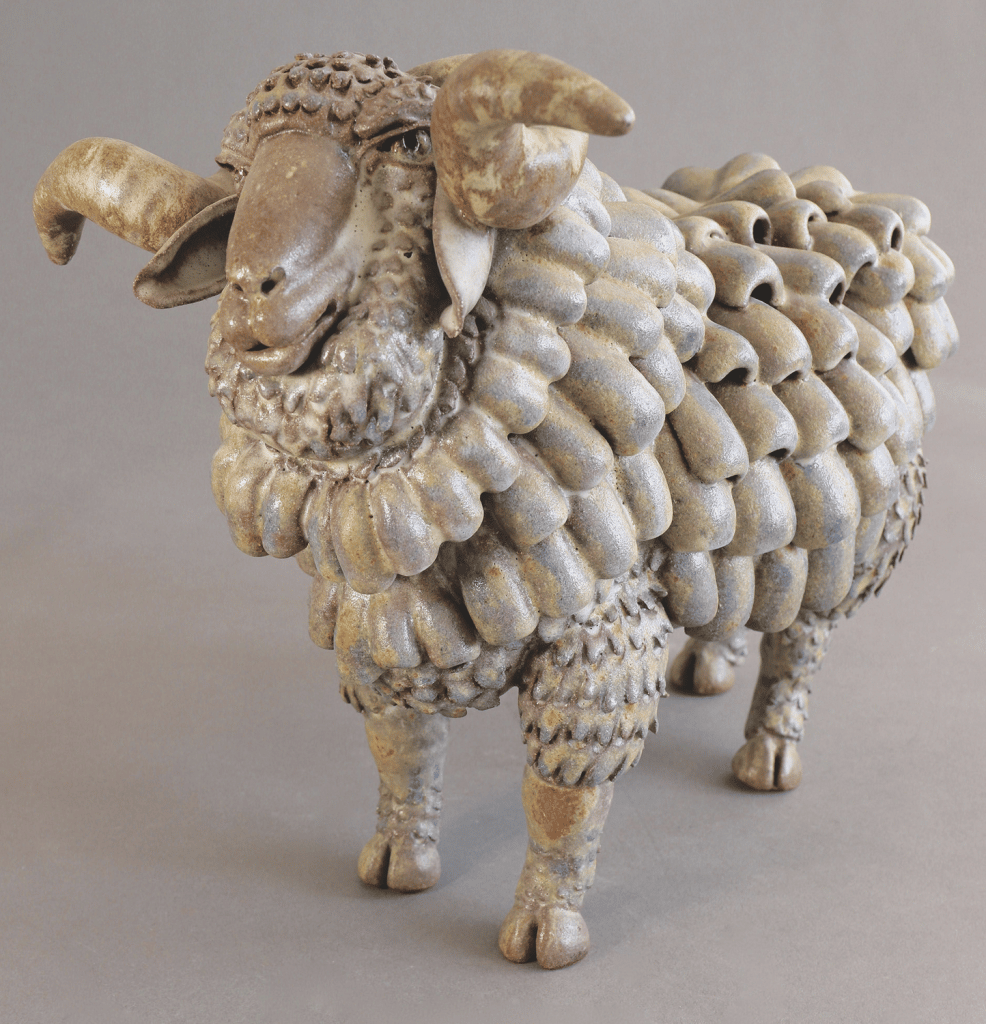
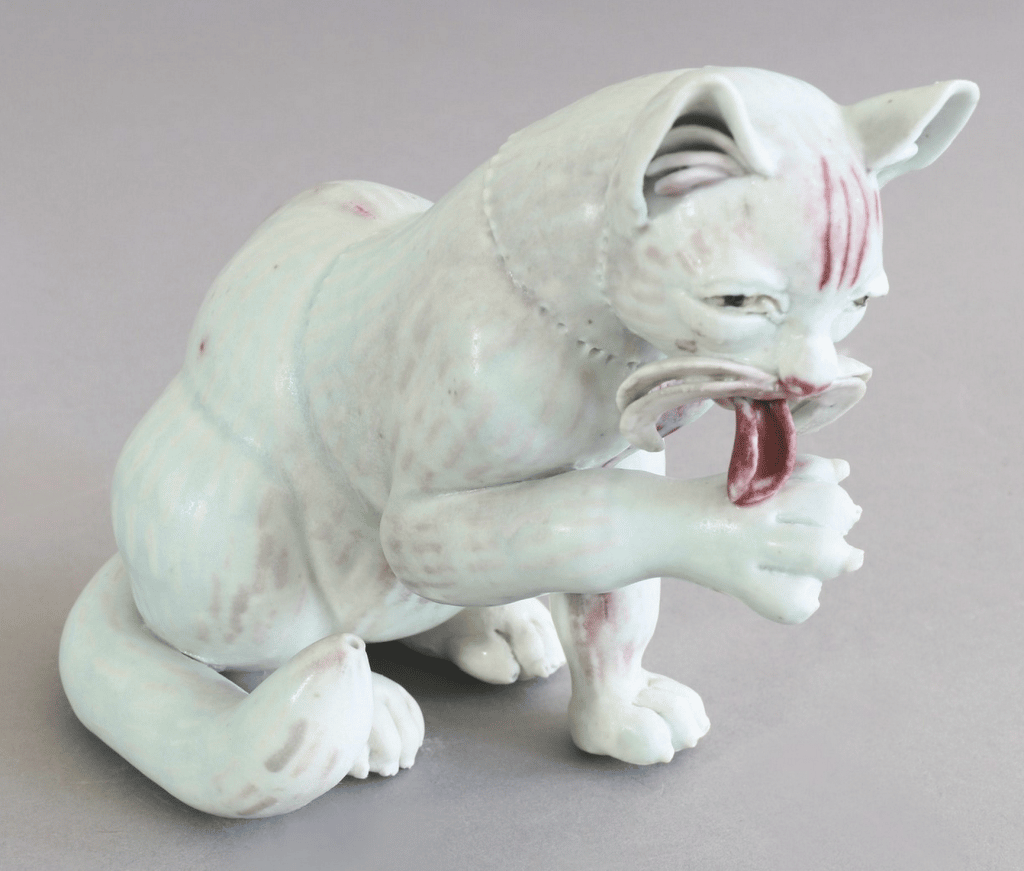
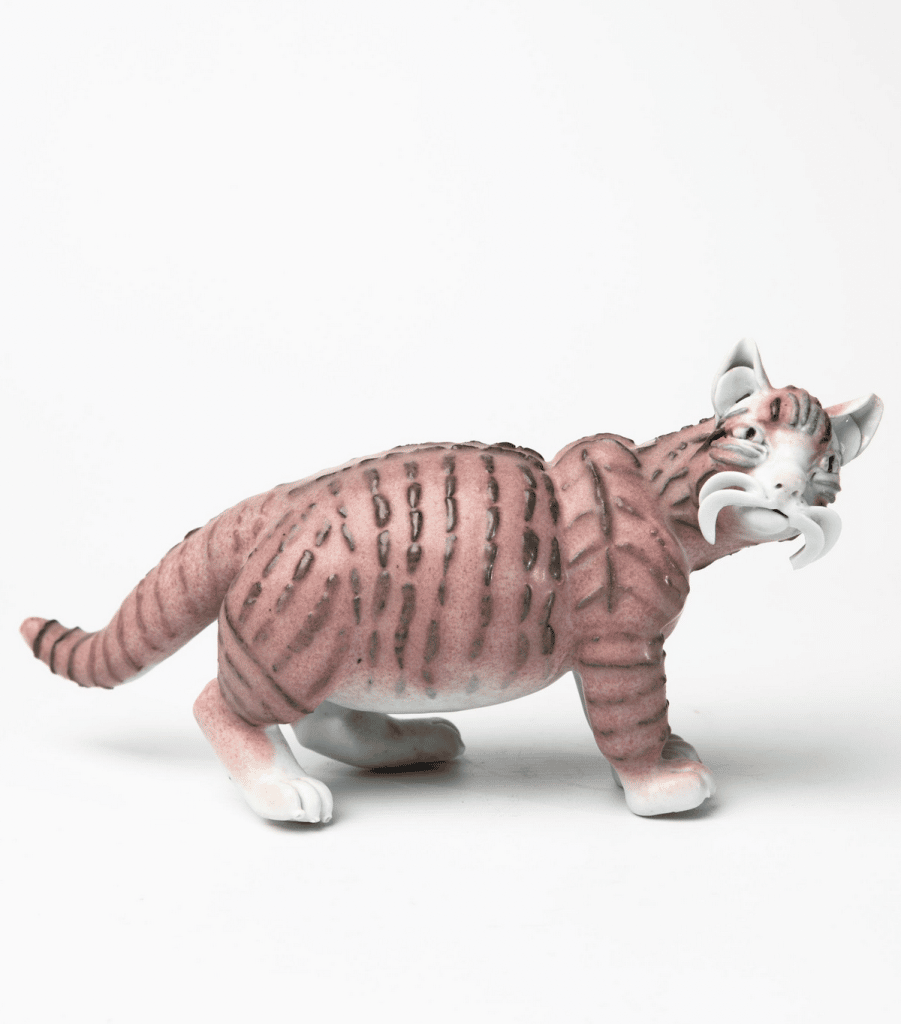
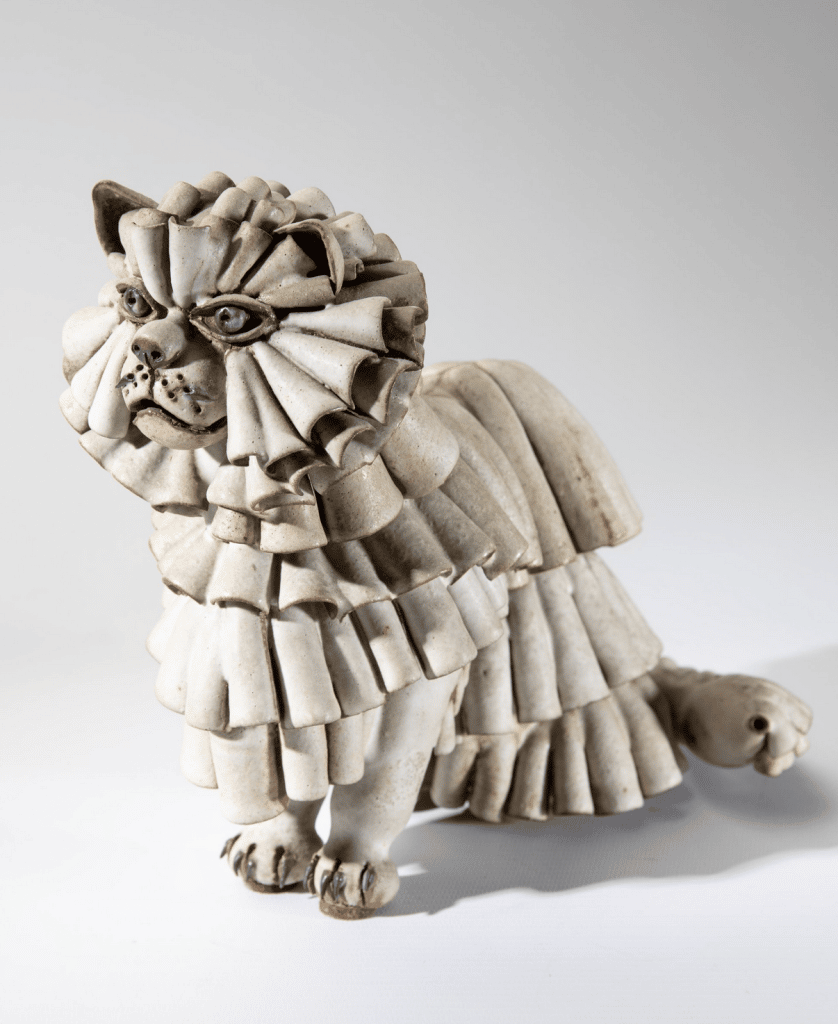
Beate Kuhn’s Functional Ware
And there are numerous images of the unique functional works she made as well. Equally as refined and explored as her other tangents, this is a creative life that ebbed and flowed and meandered while constantly pulling at similar threads of ideas throughout the decades of her prolific career.
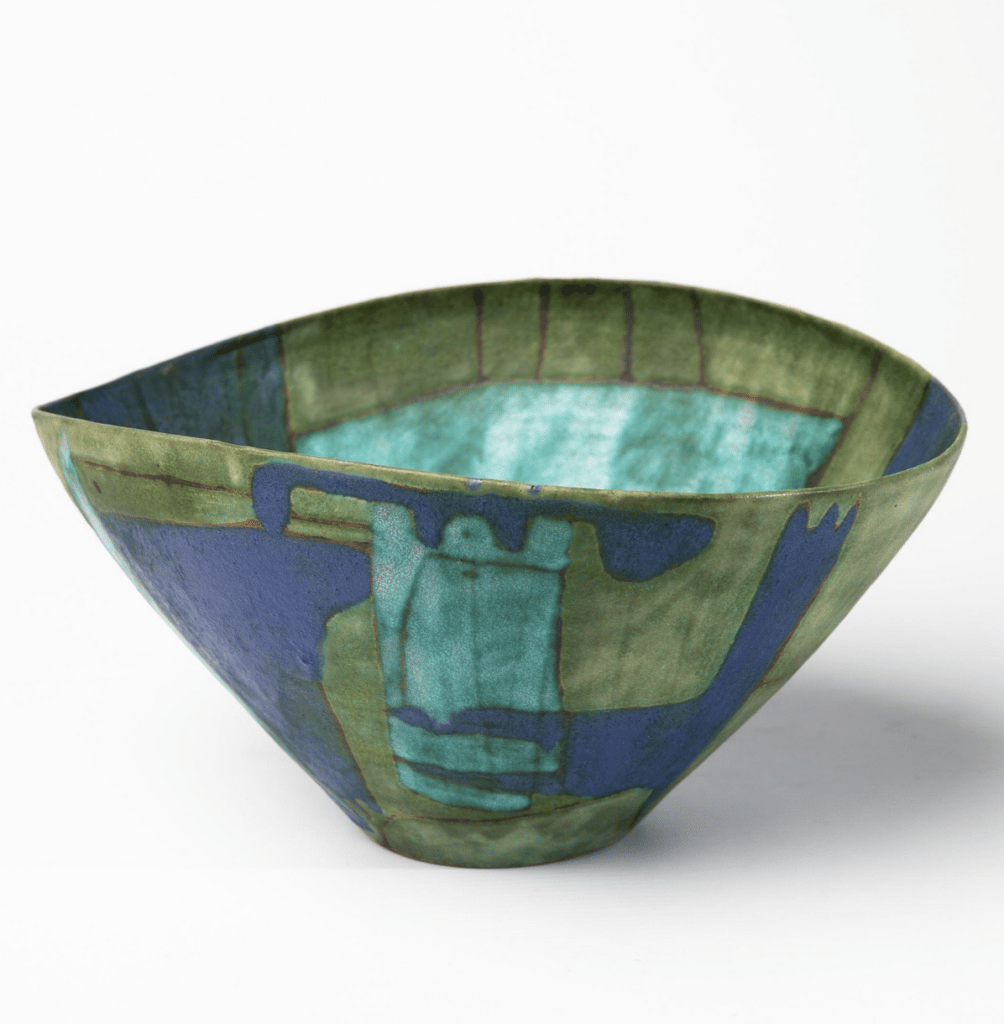
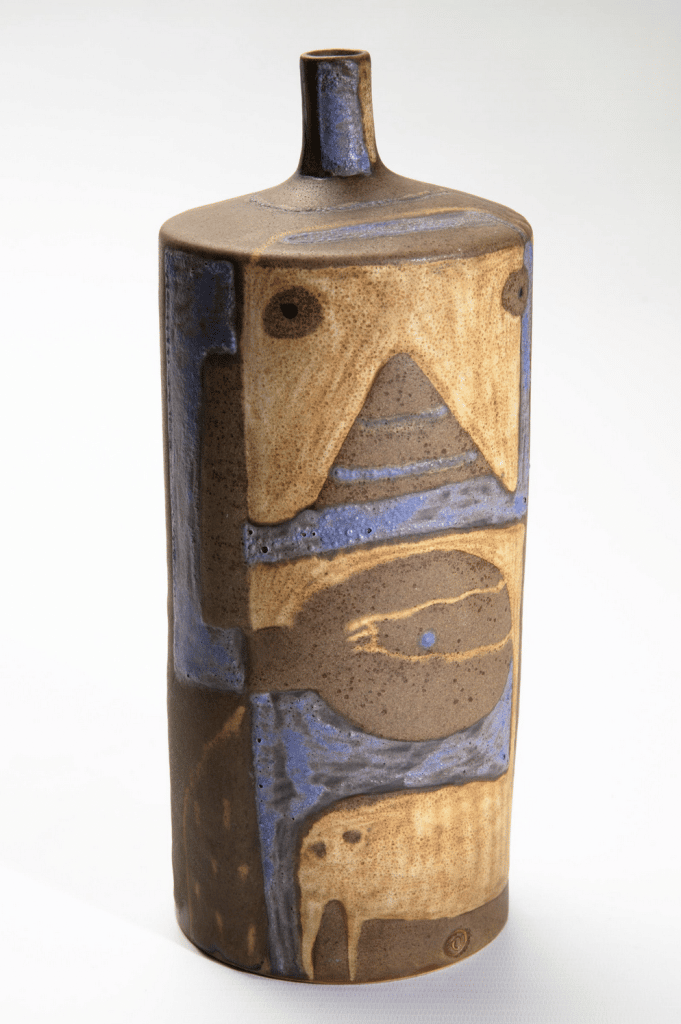
As I was going though Beate’s work, I thought about a comment made by Michael Sherrill on a recent episode of Tales of a Red Clay Rambler Podcast which I was listening to in the studio the other day. In reference to how artists shift and explore new directions in our work, he talked about how we tend to move on when things are working well. It’s the challenges we seek. I agree that it’s the questions more then the answers that bring out our true creativity. It’s also hard to move away from things that have been successful over time, our commitments to audience and galleries hold us back. Beate Kuhn seems to be a perfect example of an artist that re-charged her practice numerous times in her long career, each time putting forth brilliant and unique work.
Want to read more about Beate’s work? I suggest Beate Kuhn: So Much Energy Packed Into Such a Small Space by Kay Whitney via Ceramics Monthly.
In your own career have you had those moments where you’ve shifted your work significantly? Share you experiences in the comments below, or get a discussion going in our community forums. How did your audience adapt to the change? Were the galleries and shops that sold your work accepting of the pivot? We’d love to hear from you!



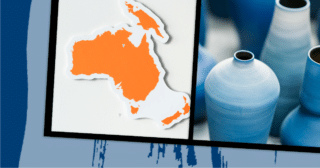

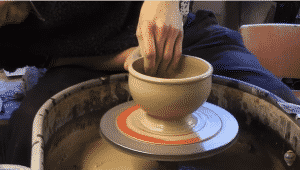
Responses